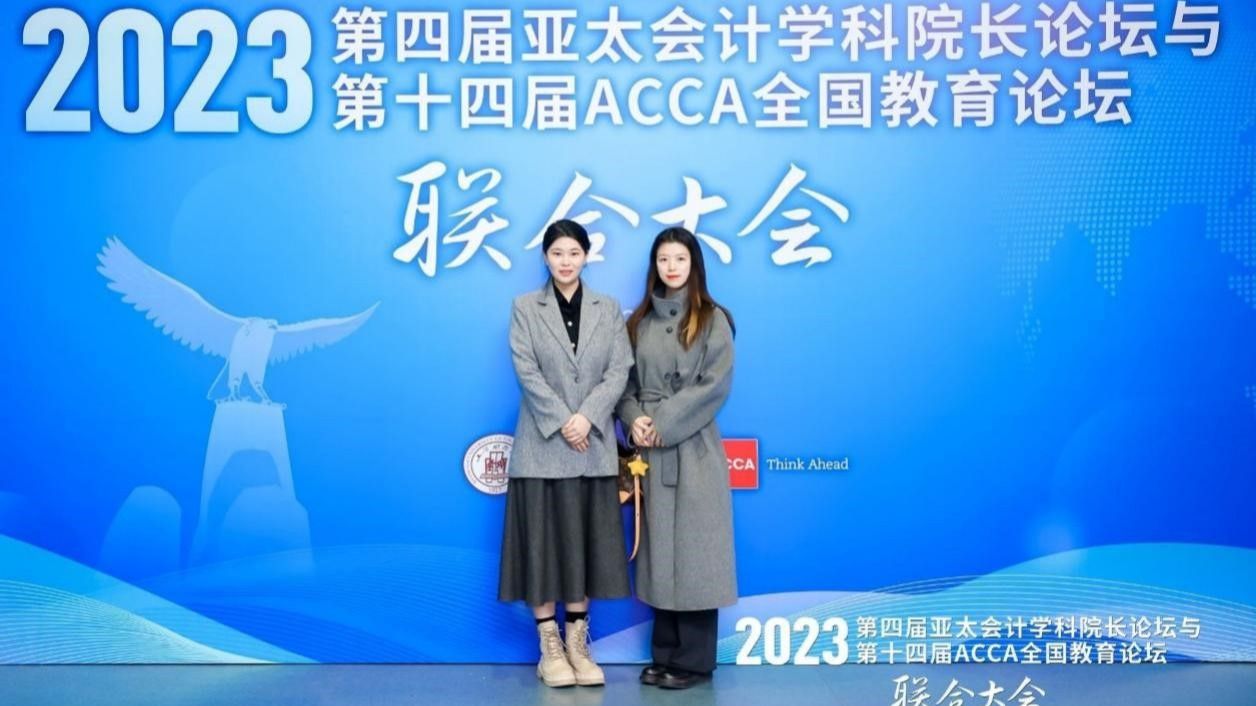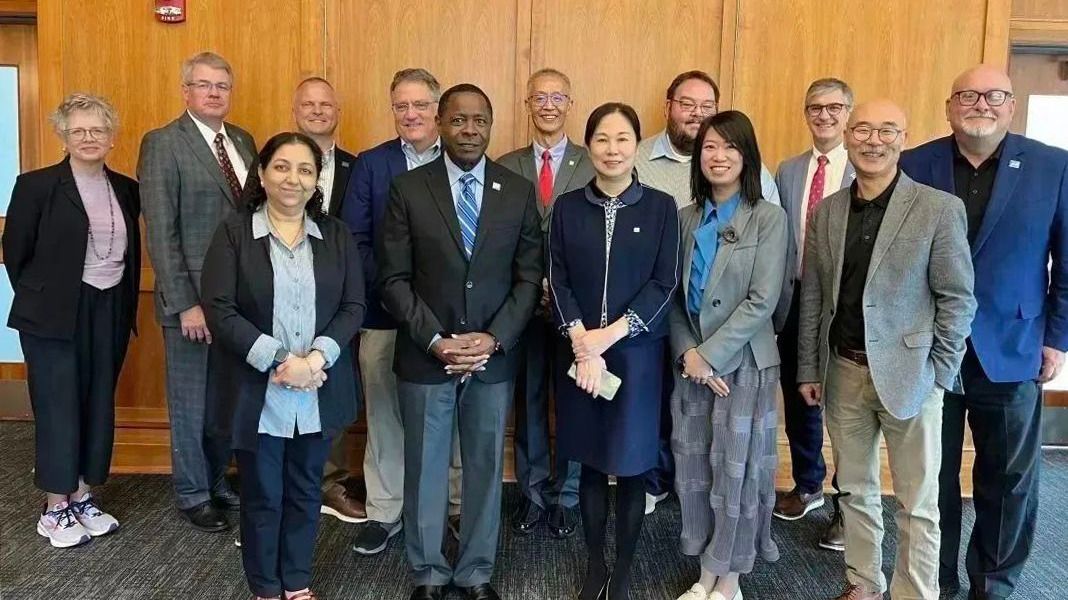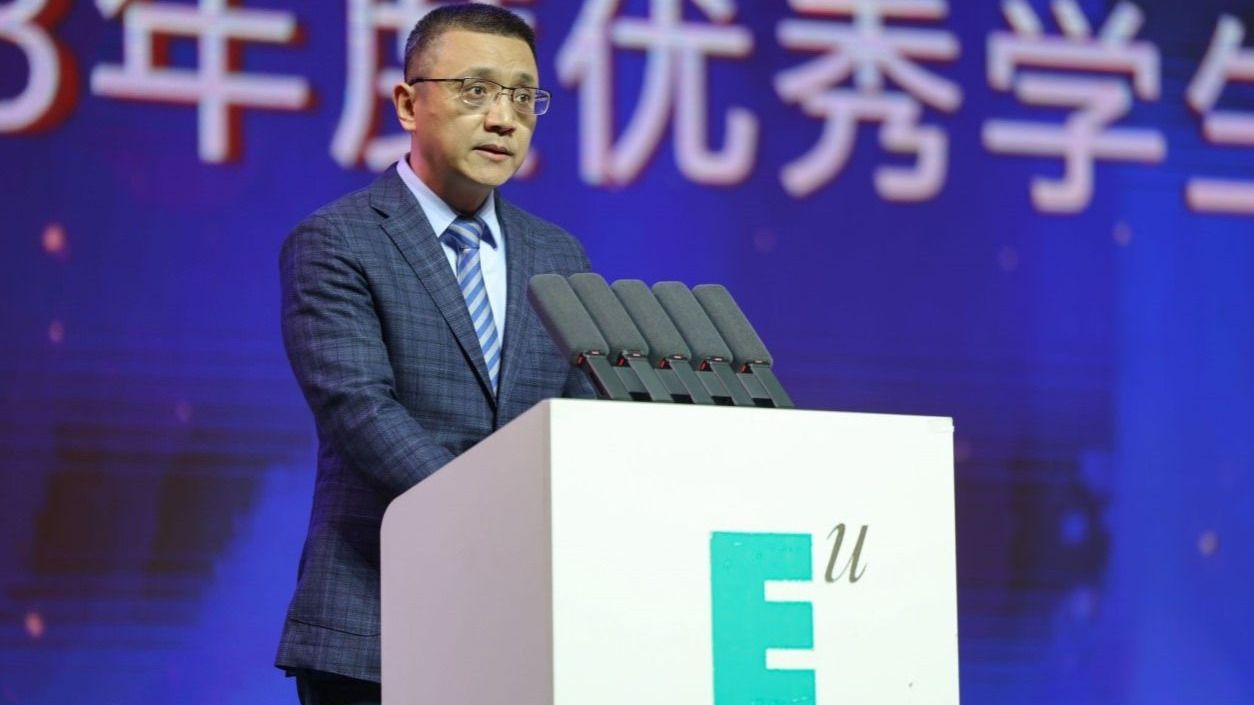As an "applied" university, Xi'an Eurasia University has always adhered to the educational and teaching tenet of "deepening the student-centered education system and comprehensively improving the quality of applied talent cultivation". On November 22, the "Promoting Industry-Education Integration and Improving Cultivation Quality" & School-Enterprise Cooperation Signing Ceremony of the School of Digital Finance Industry was successfully held at Xi'an Eurasia University. The ceremony was hosted by the School of Finance and Data Science and participated by outstanding enterprises such as Chang'an Futures Co., Ltd., CluBear, Xi'an Financial Holdings Co., Ltd., Shenzhen Xunfang Technology Co., Ltd. and Shaanxi Shuoke Intelligent Technology Co., Ltd.
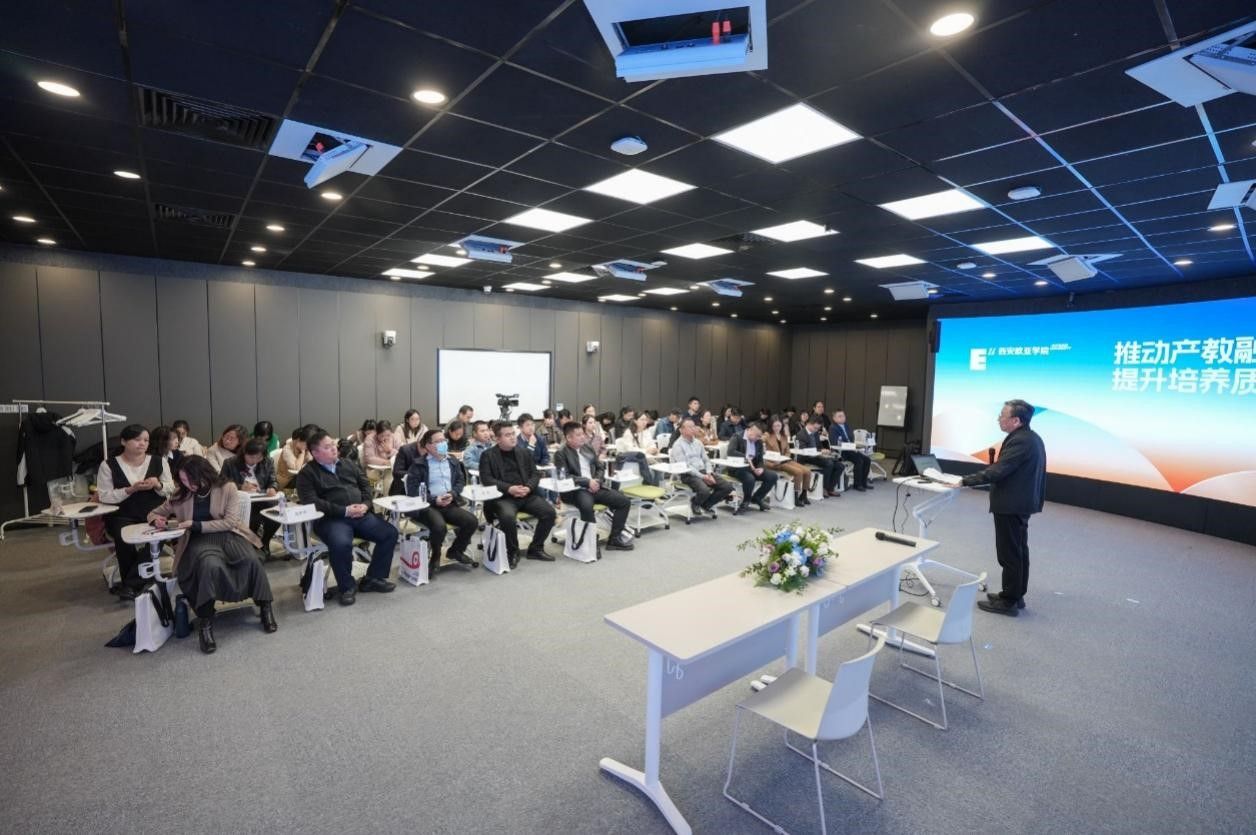
(Fig. 1) Scene of the signing ceremony
The signing marks the establishment of an industrial school under the social service concept model with "finance + technology" and "data + industry" as its core, which is of far-reaching significance for deepening the integration of production and education, exploring school-enterprise collaborative education, promoting the construction of digital financial talent team, and innovating the quality cultivation system.
Future-oriented Financial Education
In his opening speech, Professor Wang Mancang, Academic Dean of the School of Finance and Data Science, first extended a warm welcome to all industry leaders present. Starting from Adam Smith's value equilibrium theory in traditional economics, he pointed out that the birth of computational economics has provided a discipline foundation for breakthroughs in dynamic equilibrium of large-scale market economy and brought changes to discipline construction. On the other hand, the emergence of fintech has stimulated the rapid growth of business formats, such as blockchain digital encryption and Bitcoin virtual trading, which brings new challenges to teaching and education in the financial industry. Schools' researchers are required to think about the link between the real world and students.
In addition, the application of AI finance has brought a new upgrade of scientific and technological tools, such as ChatGPT 4.0's content interaction. These changeable, developing and digital industry trends have redesigned the thinking framework of educators in the past, while changing the talent demand, business structure and talent structure of the financial industry. For highly digitalized industries such as finance, the School of Finance and Data Science will take "technology + industry + financial services" as its basis, insist on cultivating financial application-oriented talents with compound skills and international vision. It is committed to improving the comprehensive quality of talents and industry foresight and achieving resonance between education and digital technology financial institutions and enterprises by creating new growth space and opportunities.
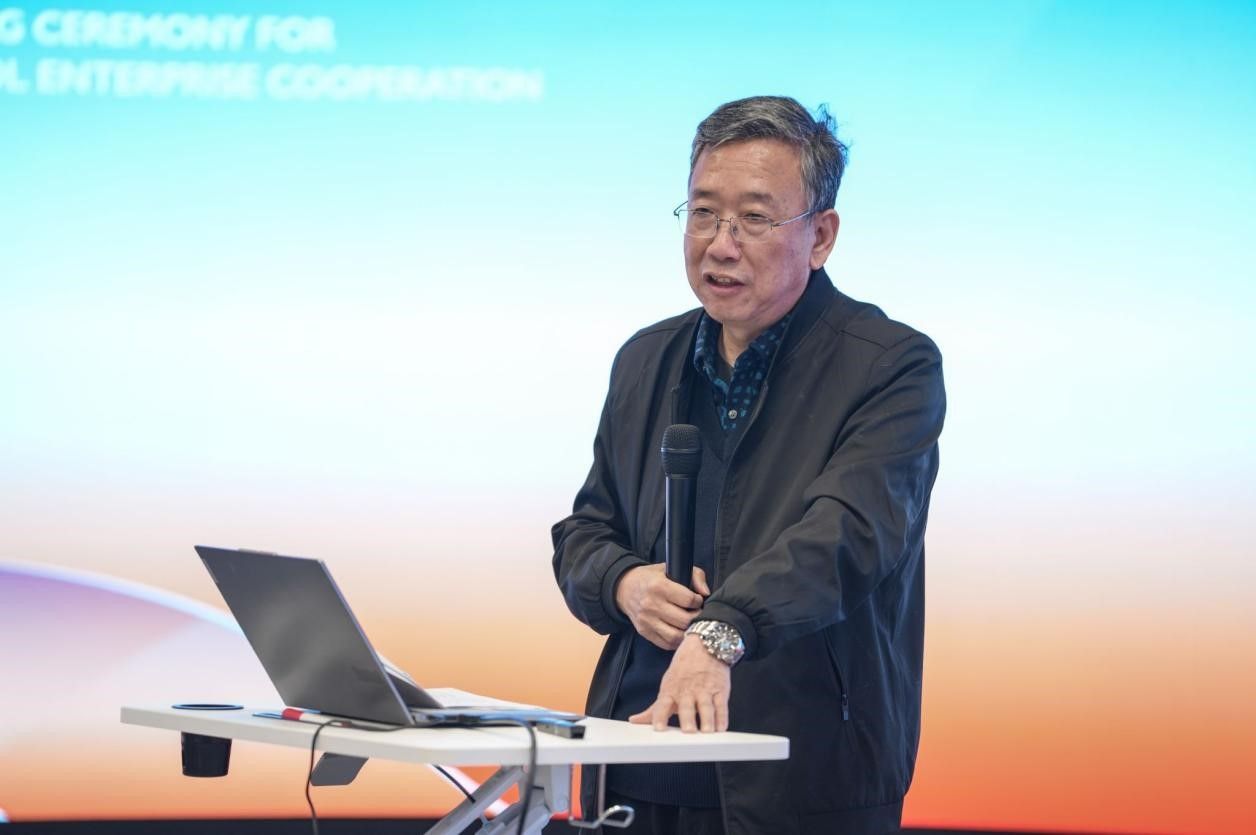
(Fig. 2) Professor Wang Mancang extends a warm welcome to all industry leaders.
About the「School of Digital Finance Industry」
Liu Yan, head of economic statistics at the School of Finance and Data Science, gave a general introduction to the School of Digital Finance Industry based on the basic situation and industry trends.
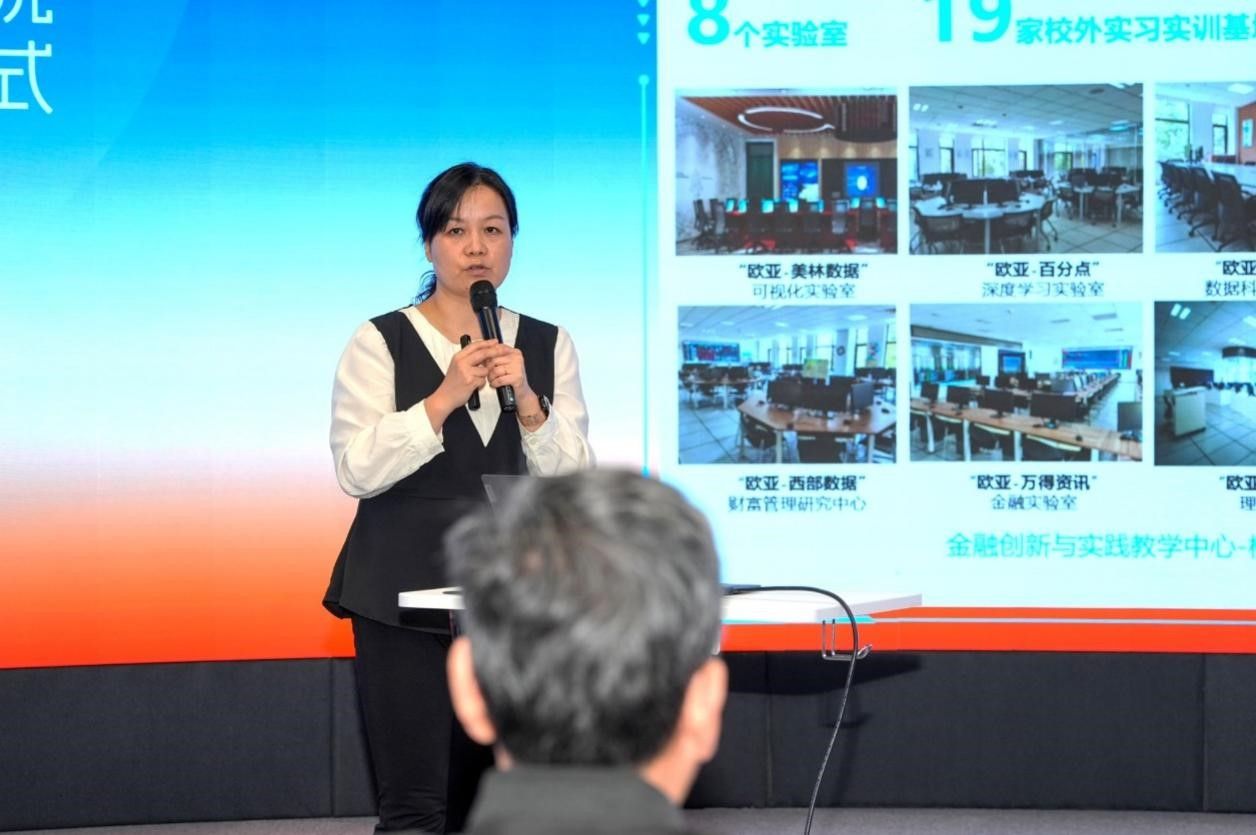
(Fig. 3) Liu Yan, head of economic statistics, gives a general introduction to the School of Digital Finance Industry.
She pointed out that the School of Digital Finance Industry is an industry-education integration school initiated by the School of Finance and Data Science of Xi'an Eurasia University and jointly built with a number of outstanding enterprises in Shaanxi Province. Closely following the trend of demand for modern data analysis and financial talents in industry development, the industrial school takes finance as the core and economic statistics and data science & big data technology (science) as the support to form a development feature of "major + data + industry" and help research on the construction of financial ecological system and high-quality economic development under the background of digital finance. The output of research results mainly includes four dimensions: market research, satisfaction research, data analysis (including business research and quality research), and educational research.
At the same time, with regard to future development thinking, Liu Yan pointed out that in the future, the industrial school should focus on various aspects such as continuously building an educational integration form of "finance + data", how social services should be continuously connected with enterprises, and enterprises' demand for "finance + data" talent cultivation. On the basis of application-oriented research, the industrial school should give full play to the collaborative education efficiency to help upgrade the cultivation of digital financial talents.
School-Enterprise Cooperation Signing Ceremony
At this conference, the School of Finance and Data Science reached cooperation on industry-education integration in different dimensions with a number of outstanding enterprises in the industry, hoping to explore collaborative education mechanisms with high-quality enterprises and make beneficial contributions to the development of the industry.
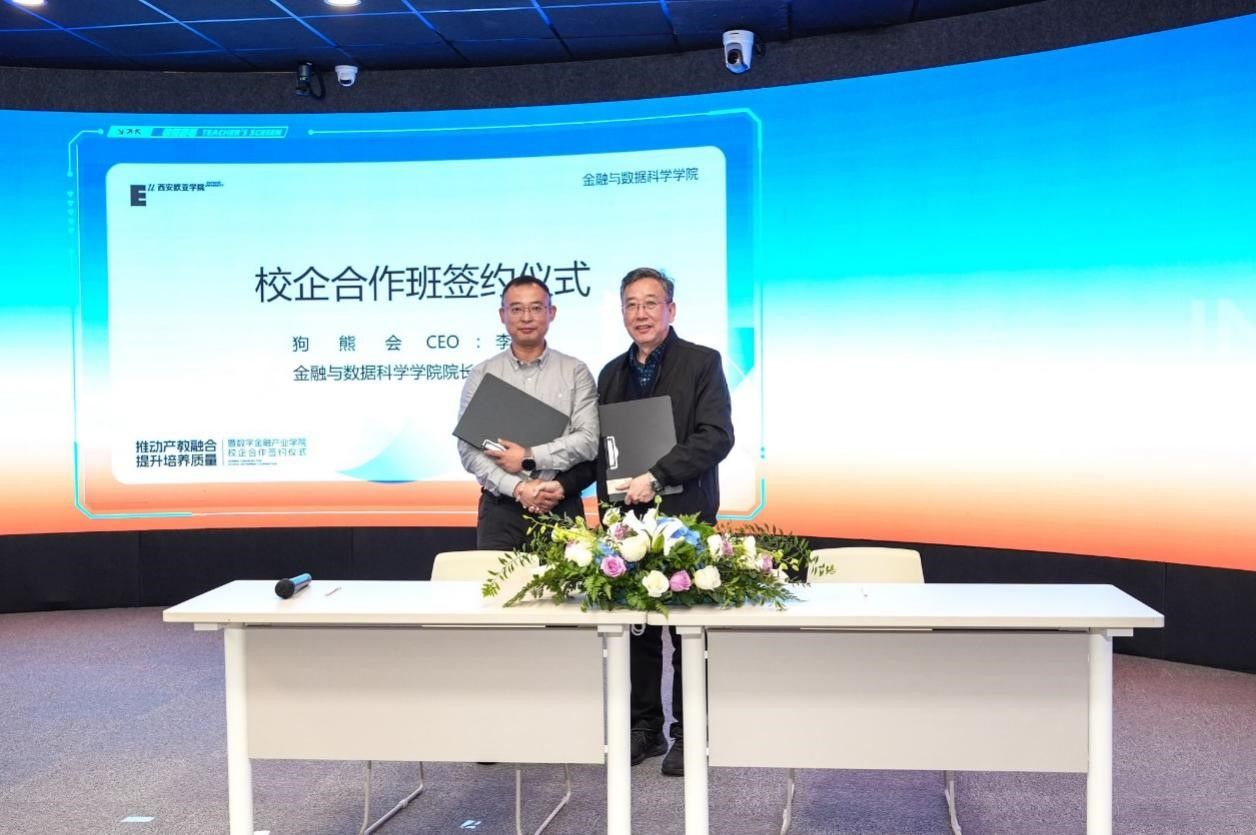
(Fig. 4) Li Guangyu, CEO of CluBear, and Wang Mancang, Academic Dean, sign an exchange document, marking successful strategic cooperation in school-enterprise cooperation classes.
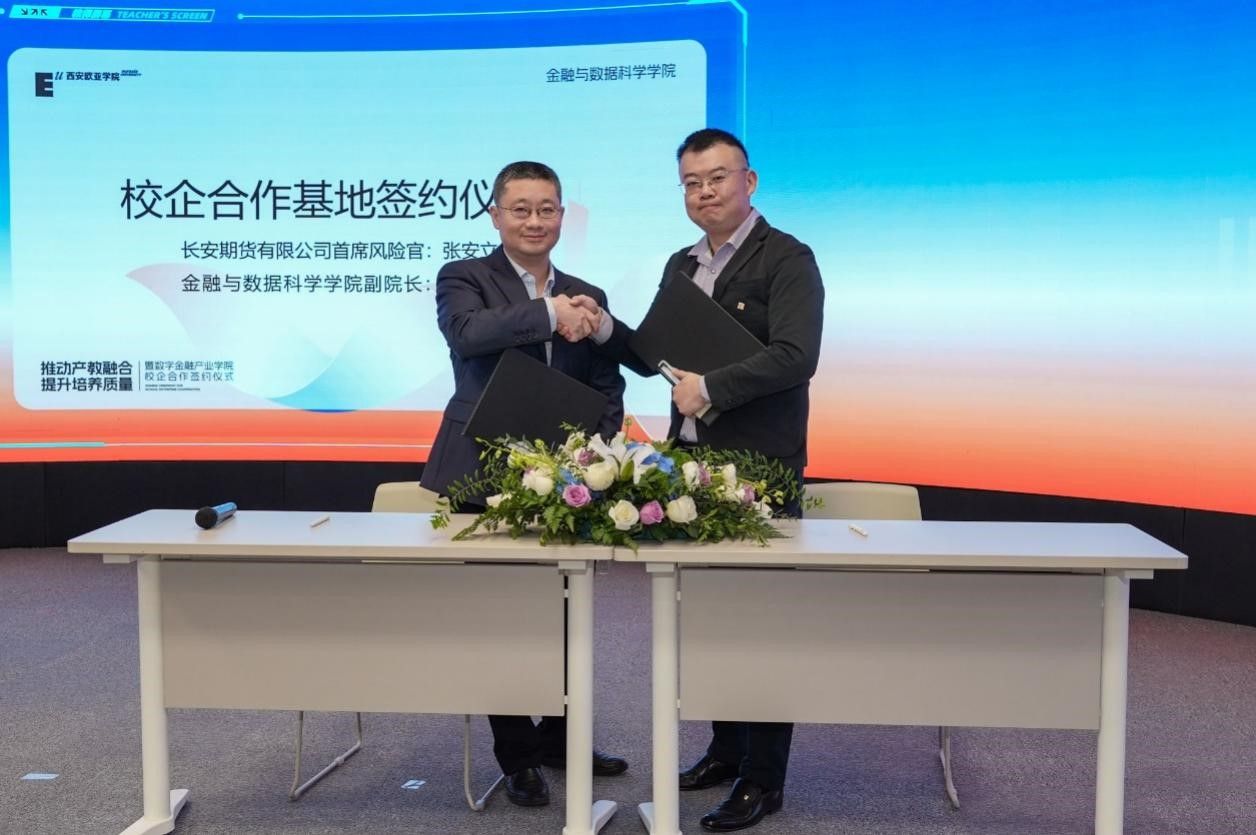
(Fig. 5) Zhang Anli, Chief Risk Officer of Chang'an Futures Co., Ltd., and Jiang Kai, Vice Dean, sign a contract for the practice base.
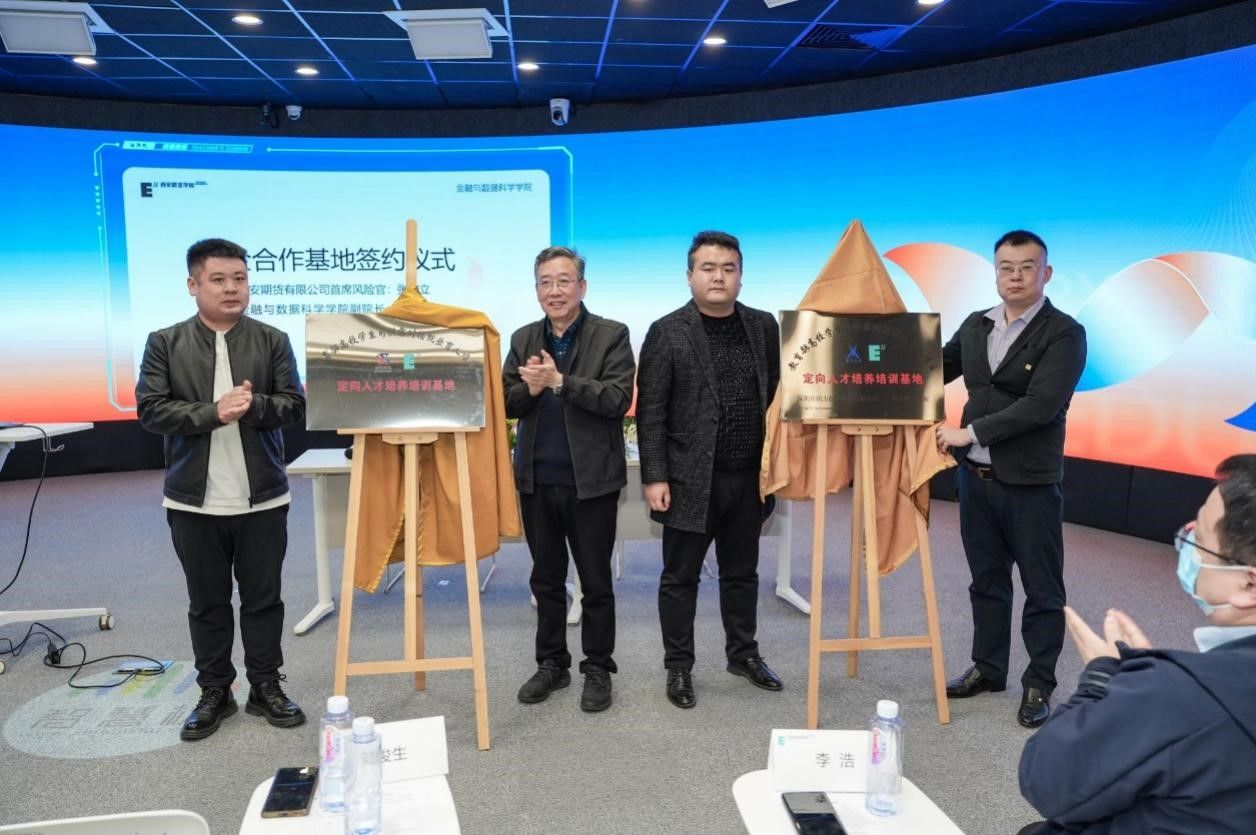
(Fig. 6) Liu Junsheng, Manager of Shenzhen Xunfang Technology Co., Ltd., Li Hao, Manager of Shaanxi Shuoke Intelligent Technology Co., Ltd., Wang Mancang, Academic Dean of the School of Finance and Data Science, and Jiang Kai, Vice Dean, jointly unveil the targeted talent cultivation base.
Theme Discussion for Collaborative Education
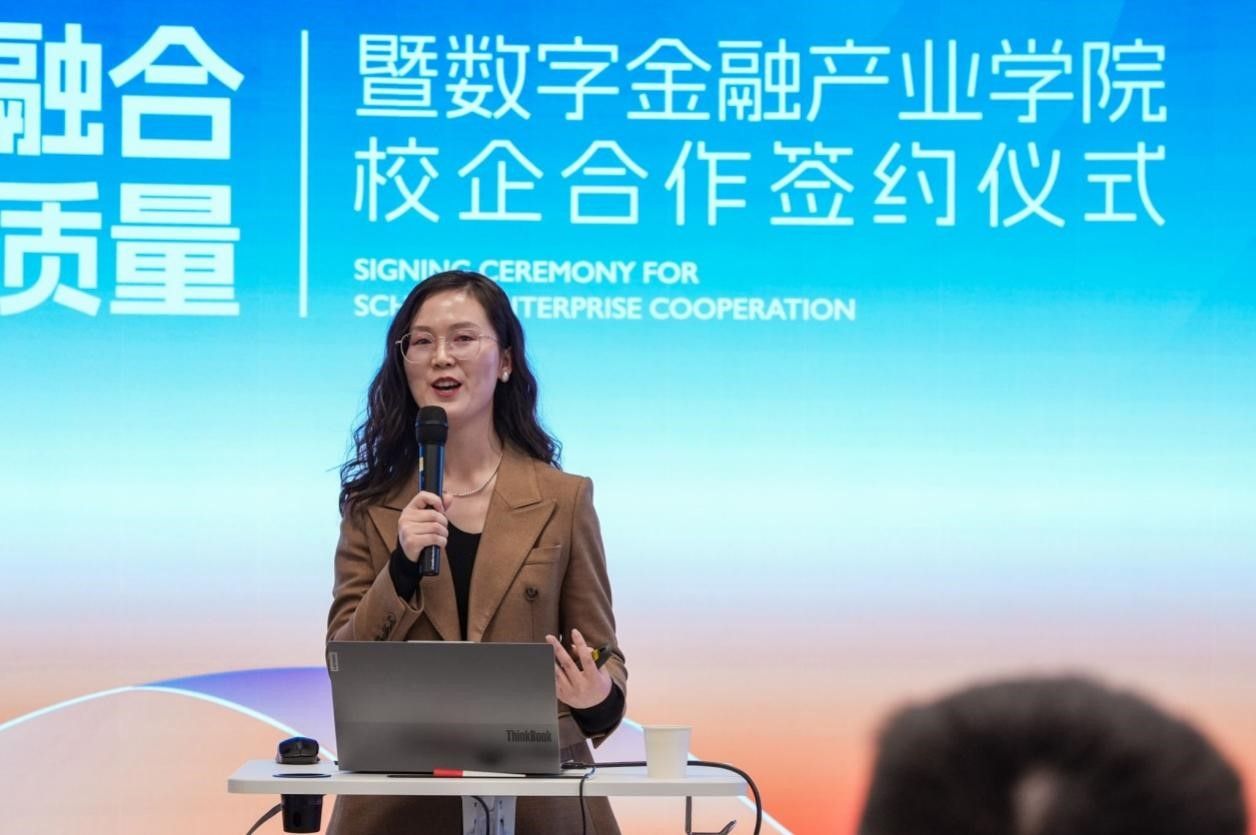
(Fig. 7) Speech by Hu Xinge, Head of the Investment Consulting Department of Chang'an Futures
In the seminar session, two guests expressed their views on the topic of "Digital Finance Talent Cultivation in the New Era":
Hu Xinge, Head of Chang'an Futures' Investment Consulting Department, pointed out that the importance of futures talent cultivation is particularly prominent at a time when the bulk commodity market is changing. The mode of school-enterprise cooperation can be used to integrate the industry-university-research education resources, build a cultivation system integrating "theoretical teaching and practical internship" and focus on the cultivation of application-oriented talents in the futures industry, so as to expand new channels for talent cultivation in the futures industry and build a new platform for employment of college talents.
At the same time, she reviewed the previous cooperation activities between Chang'an Futures and Xi'an Eurasia University and put forward future prospects and follow-up cooperation plans for the Chang'an Futures-Xi'an Eurasia University school-enterprise cooperation, such as further strengthening the promotion and publicity of school-enterprise cooperation programs, integrating industry's latest development trends and modern integrated media methods, and providing better resources and services for achieving the cooperation goals of enriching the knowledge structure of talents, enhancing the core competitiveness of employment, and broadening the channels for institutions to select and recruit talents.
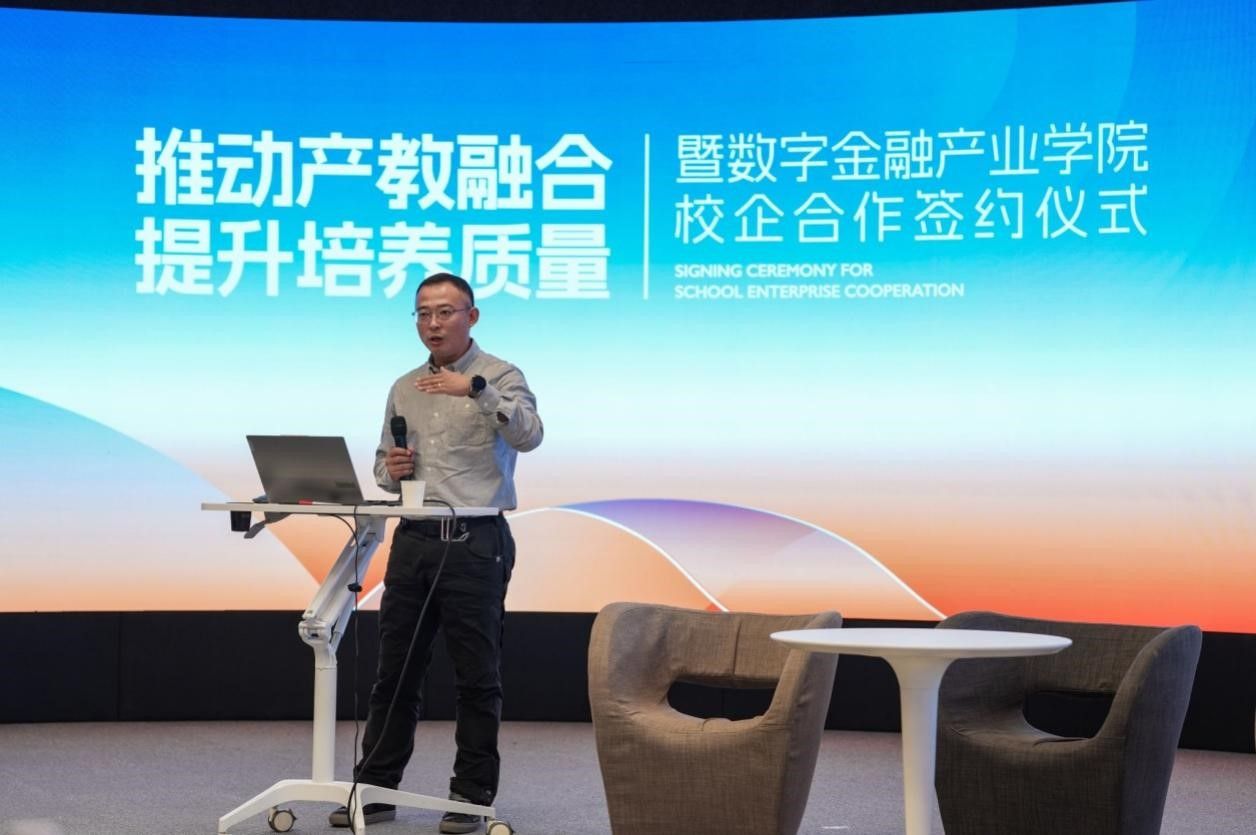
(Fig. 8) Li Guangyu, CEO of CluBear, discusses the payment and services for merchants in the financial industry.
Li Guangyu, CEO of CluBear, discussed the payment and services for merchants in the financial industry. He pointed out the importance of cultivating financial management and business thinking through a realistic example that 30% of the growth during the economic recovery comes from top merchants (luxury goods) and bottom merchants (small street-side community merchants), while the growth of middle merchants is sluggish. At the same time, he pointed out that the most important point of the enterprise cooperation activities in which CluBear participates is to "define a business problem as one that can be analyzed with data", which also puts forward the requirement for digital finance talent cultivation, i.e. having both data understanding thinking and business problem solving thinking.
Round-table Conference for Brainstorming
Presided over by Wang Mancang, five guests including Li Guangyu, CEO of CluBear, Huo Liwei from Chang'an Futures Co., Ltd., Li Hao from Shenzhen Xunfang Technology Co., Ltd., Bai Miaomiao from Xi'an Financial Holdings Co., Ltd. and Liu Junsheng from Shaanxi Shuoke Intelligent Technology Co., Ltd. discussed on the topic of "Finance + Data Talent Cultivation Needs and Outlook on School-Enterprise Cooperation Model" and expressed their wonderful opinions:
• Liu Junsheng: Energy economy (such as bulk commodity trading and carbon trading) is the trend of future industrial development, but it also faces a talent shortage. For the school-enterprise cooperation mode of application-oriented universities, it is necessary to carry out school-government-enterprise cooperation through industry-education integration, policy orientation and policy analysis based on the platform, so as to implement program results.
• Bai Miaomiao: Based on the macroeconomic situation, "data + finance" is the focus for internal transformation of financial enterprises and prevention of financial risks. Since the information construction of enterprises in 2019, there is still a scarcity of financial inter-disciplinary talents with IT background within the current enterprise. For the prospect of fintech talents and school-enterprise cooperation, we expect to form a cultivation path of "targeted cultivation + special training for enterprises" to empower fintech talents for enterprises.
• Li Hao: The development of traditional IT must be combined with the industry background to revitalize itself. There is a disconnection between talent recruitment by enterprises and talent cultivation by colleges and universities. We hope that through deeper and more solid school-enterprise cooperation, such as the "mutual recruitment of dual-qualified teachers" model covering university teachers entering enterprises for study or enterprise tutors entering universities for training, the skills gap between talent supply and demand can be effectively narrowed.
• Huo Liwei: "Digital + finance" covers a wide range of fields. From the perspective of futures, securities, insurance, fund and other industries, the road to digital construction still needs to be continued. Enterprises are also thinking about bridging the gap between talent recruitment and university talent cultivation. In particular, there is a shortage of talents in data processing, such as special talents engaged in model development, investment decision-making system construction, etc. Therefore, it is necessary to optimize the practical learning environment and cultivate application-oriented talents who understand "theory + practice + application (tool)" in school-enterprise cooperation.
• Li Guangyu: In the field of fintech, various commercial banks have set up fintech subsidiaries. Priority is given to talents with mathematical and statistical backgrounds in recruitment needs. Therefore, the School of Finance and Data Science has a good foundation for major development prospects, and there is still a large demand for "data + industry + tool" inter-disciplinary talents. In school-enterprise cooperation, we can improve the practical ability of talents by simulating the real business environment.
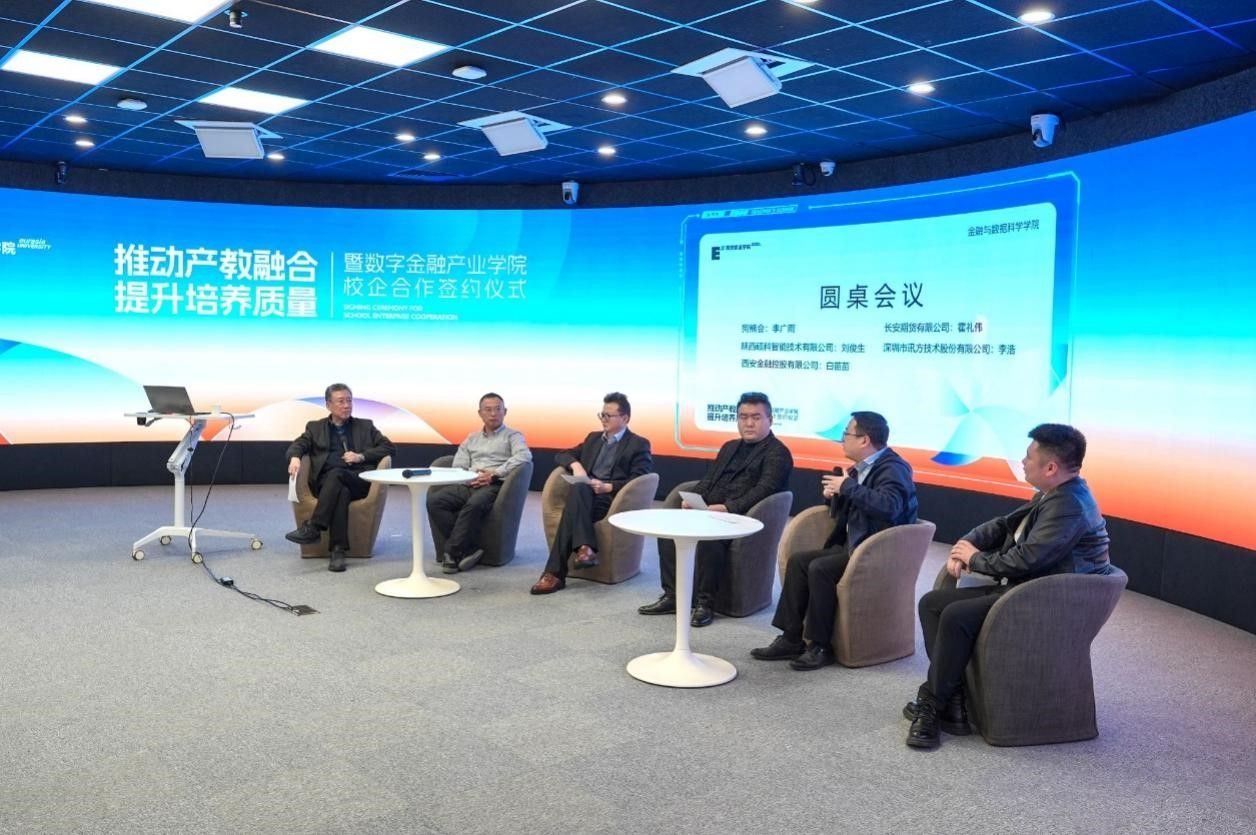
(Fig. 9) Guests of the round-table conference share their opinions.
At the end of the round-table conference, guests had a friendly exchange and interaction with teachers from the School of Finance and Data Science on issues such as "essential vocational skills for students majoring in economic statistics" and "breakthrough point of talent-job matching in fintech", so as to jointly help cultivate talents in the context of industry-education integration in the fintech industry.
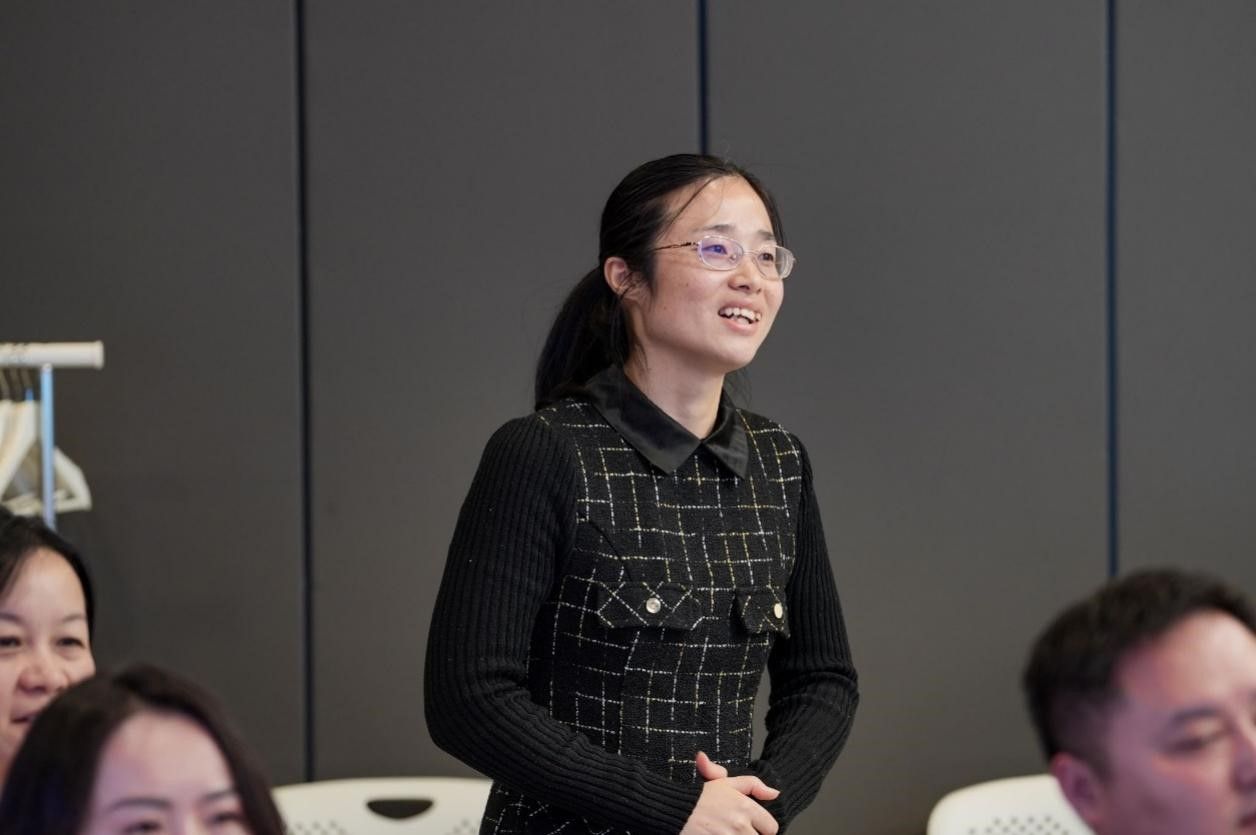
(Fig. 10) Teachers of the School of Finance and Data Science conduct friendly exchanges with guests.
(Contributed by Ma Zhen, Li Rongzhen and Liu Jiajia from the School of Finance and Data Science and Zhu Lei from the Brand Communication Department)



